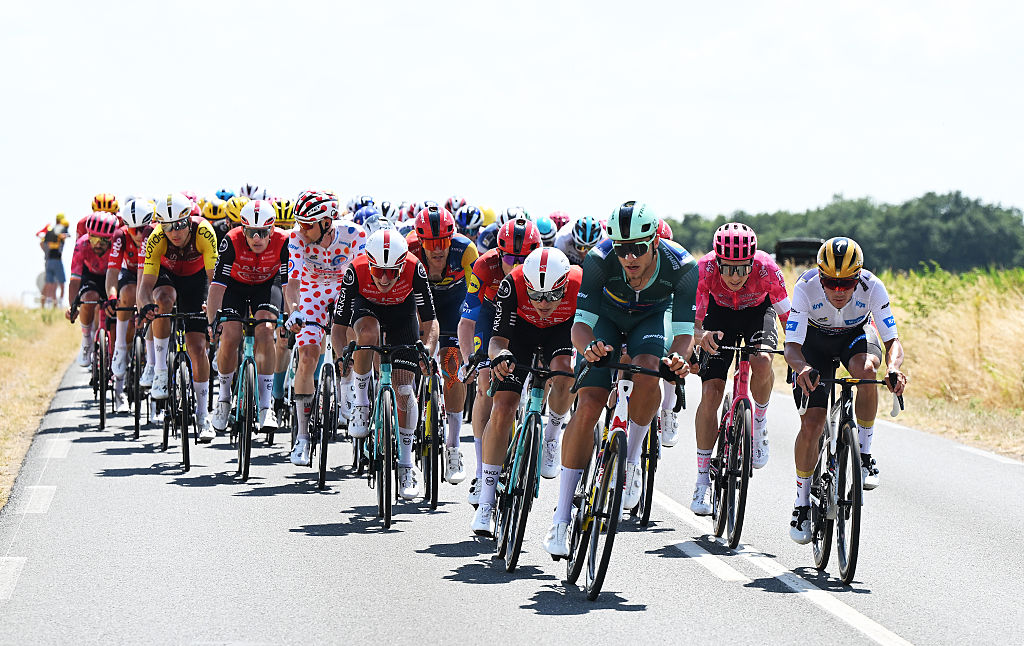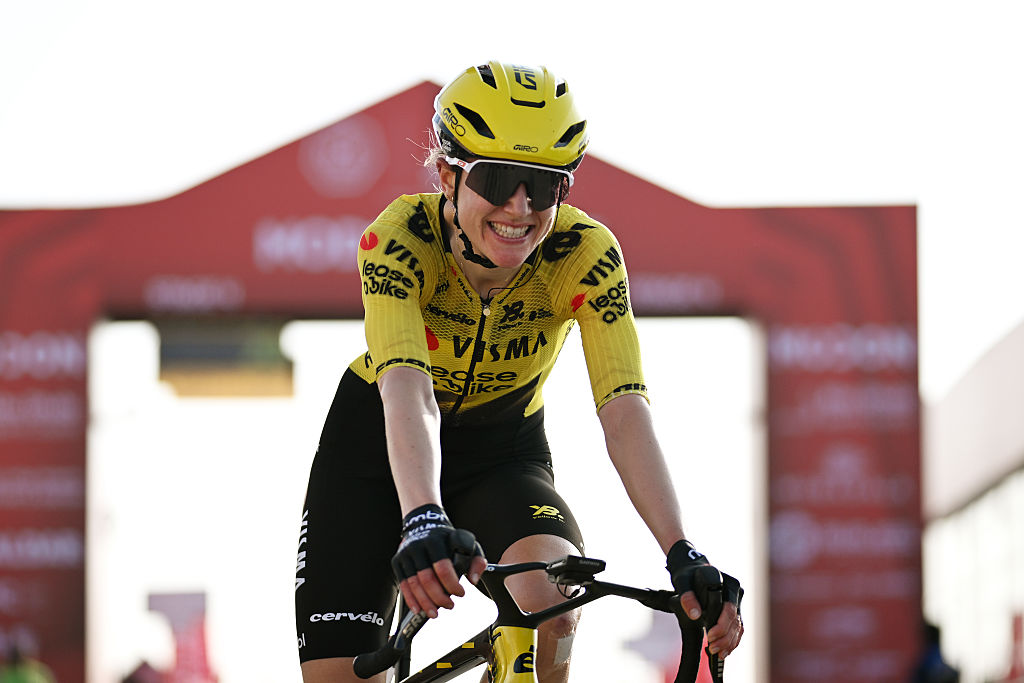An average of over 50kph for three and a half hours – Tour de France stage 9 becomes second fastest in history
Wind, Mathieu van der Poel's attack and flat parcours make for second-fastest Tour stage ever, in 31-degree heat

The latest race content, interviews, features, reviews and expert buying guides, direct to your inbox!
You are now subscribed
Your newsletter sign-up was successful
Stage 9 of the 2025 Tour de France is officially the second-fastest stage in Tour history, with the peloton averaging 50.013 kph for just under three and half hours of racing on Sunday.
It was a 174.1km sprint stage, won by Tim Merlier (Soudal-QuickStep), but unlike Saturday's sprint stage that was raced relatively restfully – though still averaged 44.6 kph – stage 9 was fast and furious, thanks in part to Mathieu van der Poel's (Alpecin-Deceuninck) efforts in the breakaway.
It is also the fastest WorldTour race so far this year, though races at lower level have averaged 51, 52 and 53 kph in 2025, and races like Paris-Roubaix have had their fastest-ever speeds broken this season.
The fastest stage in Tour history was recorded in 1999, on stage 4 from Laval to Blois – coincidentally in a similar region to the last few stages of this year's race, with stage 8 finishing in Laval.
That stage in 1999 had an average of 50.36 kph, as the peloton completed the 194.5km stage in 3:51:45. It was a sprint stage, won by Mario Cipollini. Until Sunday, this was the only Tour stage ever to break the 50 kph barrier.
Why was stage 9 so fast? There are a few reasons. Firstly, the wind direction was favourable in the beginning, and then when crosswinds hit in the second part of the race, that upped the tension and racing and saw the peloton ride at high speeds.
Secondly, Mathieu van der Poel had more than a little bit to do with it. His attack early on prompted the peloton to keep the breakaway on a tight leash, and then when he pushed on in the finale – surviving until 700m to go – that spurred on a ferocious chase behind, again upping the speeds considerably. Thirdly, the route was really as flat as they come in France, with not even a cat. 4 climb in the mix.
The latest race content, interviews, features, reviews and expert buying guides, direct to your inbox!
However, the stage was also raced in 31-degree Celsius heat, which may be good for things like air resistance, but made for a very tough day on the bike when combined with the elevated speeds.
Of the top six fastest stages ever, three happened in the last three years, and though the fastest-ever stage still stands from 26 years ago, the Tour is, on the whole, getting faster every year. Last year, Tadej Pogačar (UAE Team Emirates) had an average speed of 41.82 kph over the three weeks, compared to Chris Froome's winning average speed of 39.6 kph in 2015.
There are plenty of reasons why cycling is getting faster, from elevated fitness levels across the whole peloton, to nutrition and feeding, and bike tech and aerodynamics. To find out more, we did a big deep dive on the topic: The Tour de France is getting faster, and here's why it won't be slowing down soon.
Stage 9 has also not been the only stage of this year's race so far to trouble the record books. Stage 7 to Mûr-de-Bretagne became the third-fastest stage with over 2,000m of elevation, with stage winner Pogačar finishing with an average speed of 48.117 kph despite the 2,096m of climbing and two ascents of the tough finishing climb.
With no more truly flat stages left in this Tour – the next possible sprint is to Valence on stage 17, and that has two categorised climbs on the route – it is unlikely that the stage record will fall this year, but as history shows us, the overall Tour is only getting faster, and the final speed once the winner arrives in Paris could be as fast as we've ever seen.
The Tour de France is the biggest race in cycling, and a Cyclingnews subscription offers you unlimited access to our unrivalled coverage. Get all the breaking news and analysis from our team on the ground in France, plus the latest pro tech, live race reports, and a daily subscriber-only newsletter with exclusive insight into the action. Find out more.
Matilda is an NCTJ-qualified journalist based in the UK who joined Cyclingnews in March 2025. Prior to that, she worked as the Racing News Editor at GCN, and extensively as a freelancer contributing to Cyclingnews, Cycling Weekly, Velo, Rouleur, Escape Collective, Red Bull and more. She has reported from many of the biggest events on the calendar, including the Giro d'Italia, Tour de France Femmes, Tour of Flanders and Paris-Roubaix. She has particular experience and expertise in women's cycling, and women's sport in general. She is a graduate of modern languages and sports journalism.
You must confirm your public display name before commenting
Please logout and then login again, you will then be prompted to enter your display name.
